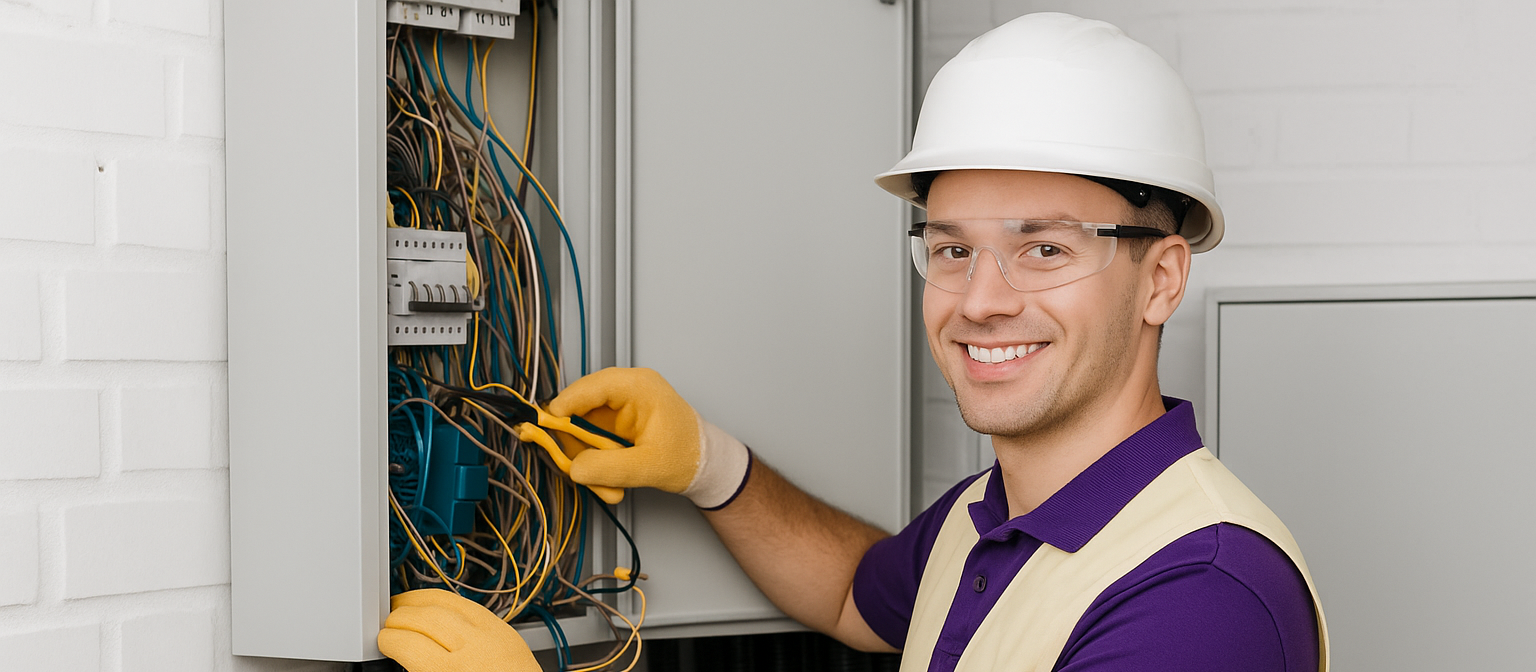Electricity is one of the most essential resources of modern life. It powers our homes, keeps businesses operating, and supports the technology that connects the world. Yet, many property owners overlook one important responsibility – maintaining their electrical systems. Regular electrical maintenance is more than a simple precaution; it’s an investment in safety, performance, and long-term reliability. By keeping your electrical system in top condition, you ensure that your property remains safe, efficient, and ready to meet your daily energy needs.
Electrical systems are built to last, but they aren’t immune to wear and aging. Wires, switches, panels, and outlets all experience gradual deterioration due to heat, vibration, dust, and moisture. Over time, insulation may crack, terminals may loosen, and corrosion may develop in connections. These issues often start small and go unnoticed, but they can eventually lead to serious problems like short circuits, power fluctuations, or even fires. Regular maintenance identifies these hidden risks early, allowing electricians to address them before they become dangerous or expensive to fix.
Safety is the most important reason to schedule regular electrical maintenance. Faulty wiring and overloaded circuits are two of the leading causes of residential and commercial fires. An electrician can detect hazards such as burnt wires, loose outlets, or overloaded panels long before they create emergencies. During an inspection, they will check grounding systems, inspect circuit breakers, and ensure all wiring meets local safety standards. Preventive maintenance protects not only your property but also the lives of the people who occupy it. A safe electrical system reduces the risk of shocks, fires, and system failures.
Beyond safety, maintenance ensures the reliability of your power supply. Electrical issues tend to surface when you least expect them during a busy workday, a storm, or at night when repairs are difficult to arrange. Regular checkups prevent these sudden interruptions by ensuring that your electrical system performs consistently under pressure. Electricians will test your breakers, evaluate load capacity, and confirm that your electrical distribution is balanced. This proactive approach helps prevent blackouts, equipment damage, and the frustration of unexpected outages.
Another major benefit of electrical maintenance is energy efficiency. When circuits, outlets, or connections become dirty or corroded, they create resistance that forces your system to use more energy. This wasted power translates directly into higher electricity bills. A well-maintained system delivers power efficiently, ensuring that appliances, lighting, and equipment operate at their best. During maintenance, electricians may also suggest energy-saving upgrades such as LED lights, smart thermostats, or surge protectors improvements that not only lower costs but also promote sustainability.
Maintenance also helps extend the lifespan of your entire electrical system. Just as a car needs regular oil changes to run smoothly, electrical components need periodic inspection and servicing. Tightening connections, replacing damaged wires, and cleaning panels can prevent premature breakdowns. Components such as circuit breakers, outlets, and switches last longer when they’re properly maintained and kept within safe operating temperatures. The result is fewer replacements, fewer disruptions, and long-term cost savings for homeowners and business owners alike.
During a professional maintenance service, electricians perform a detailed assessment of your electrical infrastructure. They inspect main and subpanels for proper load distribution, test breakers and safety devices, and check outlets for voltage stability. Thermal imaging tools may be used to detect unseen heat buildup, which often indicates loose or overloaded connections. They’ll verify that grounding and bonding are secure and look for any signs of water intrusion or corrosion. These inspections are thorough and documented, giving you a clear understanding of your system’s condition and helping you plan for any future upgrades.
How often you need maintenance depends on your property and energy use. For most homes, a full inspection once every year or two is sufficient. However, commercial buildings and industrial facilities that use heavy machinery or equipment should schedule more frequent servicing often every six months. Buildings that rely on sensitive electronics, like hospitals, data centers, or manufacturing plants, benefit greatly from regular monitoring to prevent costly downtime and equipment damage.
There are also small but important steps that property owners can take between professional inspections. Test your smoke and carbon monoxide detectors regularly, avoid overloading outlets, and ensure that your breaker panel is always dry and easily accessible. Be alert to unusual signs like flickering lights, buzzing sounds, or a faint burning odor – all of which can indicate electrical problems. However, when it comes to complex tasks such as rewiring or panel replacement, always rely on a licensed electrician. Handling electrical systems without proper training can be extremely dangerous.
Skipping maintenance might seem like a cost-saving decision, but it often leads to bigger problems and higher expenses down the line. Outdated wiring, damaged breakers, or worn-out outlets can cause power surges, appliance failures, or even electrical fires. The cost of one preventive inspection is far less than the cost of emergency repairs, property loss, or downtime. Routine maintenance is not a luxury – it’s a necessity that ensures safety, reliability, and financial protection.
A strong maintenance plan begins with a full evaluation of your electrical system. Electricians will document existing conditions, identify risks, and create a schedule for future servicing. They may also recommend upgrades such as surge protection systems, smart panels, or improved grounding. By following this structured approach, you can maintain compliance with electrical codes while ensuring your system remains efficient and dependable.
In conclusion, regular electrical maintenance is an essential part of responsible property ownership. It prevents hazards, saves money, extends equipment life, and ensures a steady power supply for your home or business. A well-maintained system gives you peace of mind knowing that your electrical setup is safe and reliable. Don’t wait for a failure to happen – schedule professional maintenance today and protect your property from the risks of neglect while securing uninterrupted power for the future.
If it has been a while since your last inspection, contact a licensed electrician to perform a comprehensive checkup. Taking proactive steps now can help prevent accidents, improve energy performance, and keep your property operating safely and efficiently for years to come.

